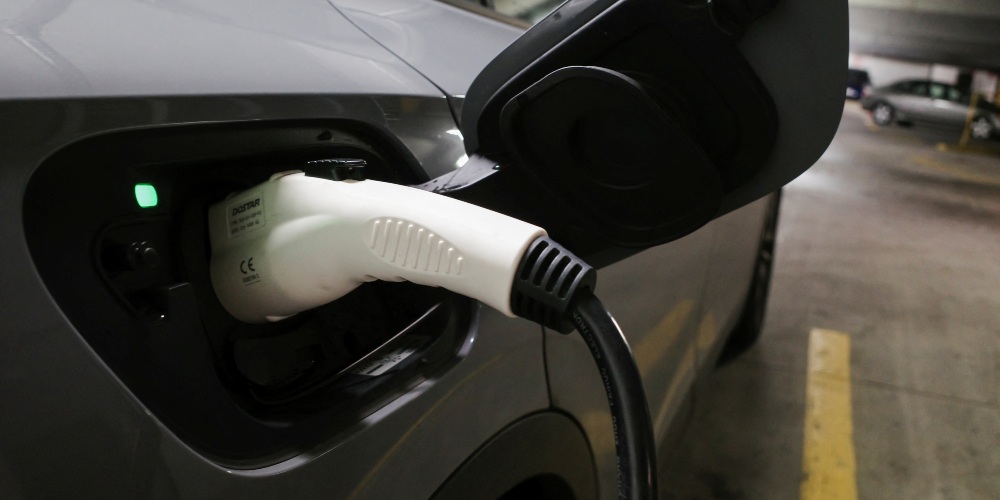![]() (DCNF)—Volkswagen (VW) AG is considering shuttering factories in Germany as European car companies struggle to compete with Chinese electric vehicle (EV) manufacturers.
(DCNF)—Volkswagen (VW) AG is considering shuttering factories in Germany as European car companies struggle to compete with Chinese electric vehicle (EV) manufacturers.
The company has not closed a German plant in its entire 87-year history, but facing a slowdown in European car sales and stiff competition from Chinese EV maker BYD it is now weighing its options, according to Bloomberg. Experts predict the move would spark closures across the continent, with more than 30 European car factories currently operating at unprofitable levels.
“If even VW mulls closing factories in Germany, given how hard that process will be, it means the seas have gotten very rough,” Pierre-Olivier Essig, a London-based equities analyst at AIR Capital, told Bloomberg. “The situation is very alarming.”
Volkswagen considering first-ever plants shutdown really hits "Germany economic fall" home
"There are no more cheques coming from China" CEO referring to falling profit in VW's biggest market
Europe's car market shrunk after covid and co was facing demand shortfall of ~2 plants pic.twitter.com/Z1CaydWh13
— Generalist Lab (@Generalist_Lab) September 5, 2024
Car sales in Europe are down nearly one-fifth from prior to the COVID-19 pandemic and EV demand has slackened as Germany and Sweden have removed and reduced incentives to purchase the vehicles, Bloomberg reported. As a result, Chinese EV manufacturer BYD has jumped into the European market, pricing its Seagull model at just $9,700 before tax, a far cry from the European’s average EV cost of $48,000 in 2022.
VW began downsizing in July, with its Audi subsidiary cutting 90% of its 3,000 person workforce at its manufacturing plant in Brussels, Belgium, according to Bloomberg.
The company’s share price is now approaching the lows of its 2015 “diesel crisis,” when the U.S. Environmental Protection Agency accused the company of installing illegal software in its cars in order to artificially improve its results on diesel emission tests, BBC News reported. The company also posted a €100 million net cash flow loss on its automotive business in the first half of 2024.
BYD dethroned Tesla as the world’s largest EV manufacturer in 2023, selling over 3 million vehicles and increasing profits by more than 80%. The company is tied to the Chinese Communist Party’s Belt and Road Initiative — a massive China-led infrastructure project that looks to increase the country’s influence across the globe.
“I am deeply concerned,” economic policy expert for Germany’s ruling party Bernd Westphal told Bloomberg. “Despite all understanding for the challenges facing the automotive industry, plant closures and job cuts are not a convincing strategy.”
Volkswagen did not immediately respond to a request for comment.
All content created by the Daily Caller News Foundation, an independent and nonpartisan newswire service, is available without charge to any legitimate news publisher that can provide a large audience. All republished articles must include our logo, our reporter’s byline and their DCNF affiliation. For any questions about our guidelines or partnering with us, please contact [email protected].
Controlling Protein Is One of the Globalists’ Primary Goals
Between the globalists, corporate interests, and our own government, the food supply is being targeted from multiple angles. It isn’t just silly regulations and misguided subsidies driving natural foods away. Bird flu, sabotaged food processing plants, mysterious deaths of entire cattle herds, arson attacks, and an incessant push to make climate change the primary consideration for all things are combining for a perfect storm to exacerbate the ongoing food crisis.
The primary target is protein. Specifically, they’re going after beef as the environmental boogeyman. They want us eating vegetable-based proteins, lab-grown meat, or even bugs instead of anything that walked the pastures of America. This is why we launched a long-term storage prepper beef company that provides high-quality food that’s shelf-stable for up to 25-years.
At Prepper All-Naturals, we believe Americans should be eating real food today and into the future regardless of what the powers-that-be demand of us. We will never use lab-grown beef. We will never allow our cattle to be injected with mRNA vaccines. We will never bow to the draconian diktats of the climate change cult.
Visit Prepper All-Naturals and use promo code “veterans25” to get 25% off plus free shipping on Ribeye, NY Strip, Tenderloin, and other high-quality cuts of beef. It’s cooked sous vide, then freeze dried and packaged with no other ingredients, just beef. Stock up for the long haul today.


